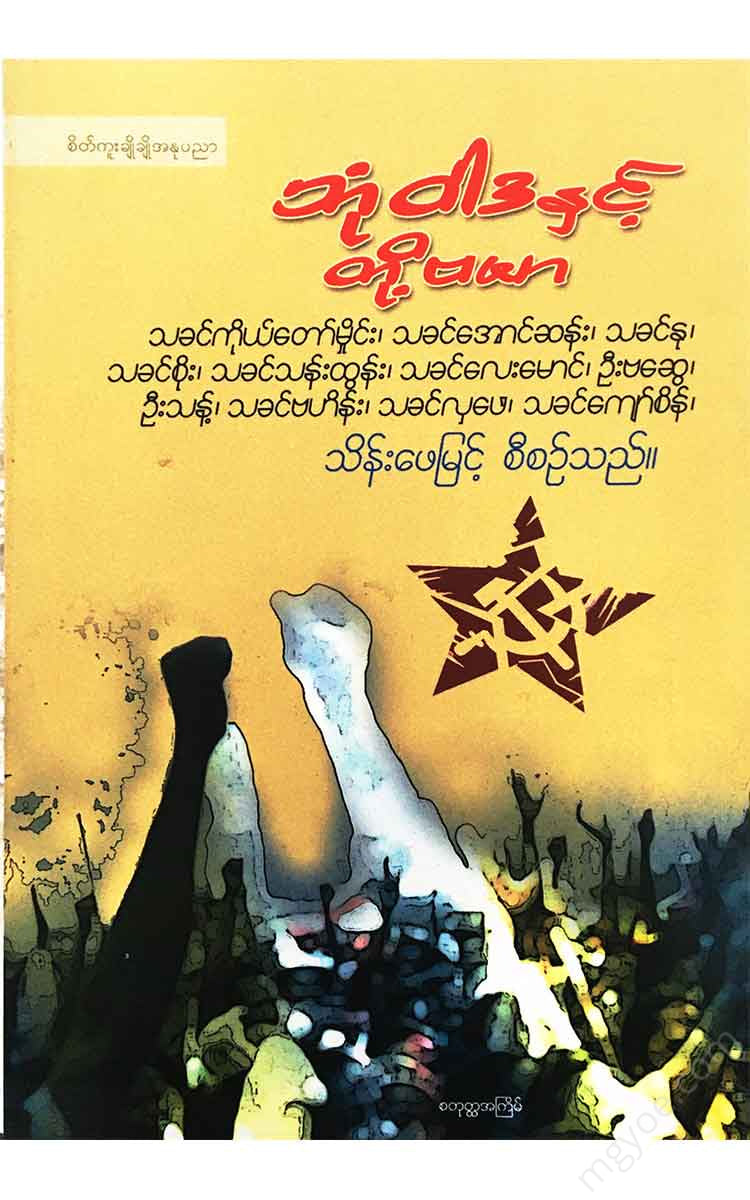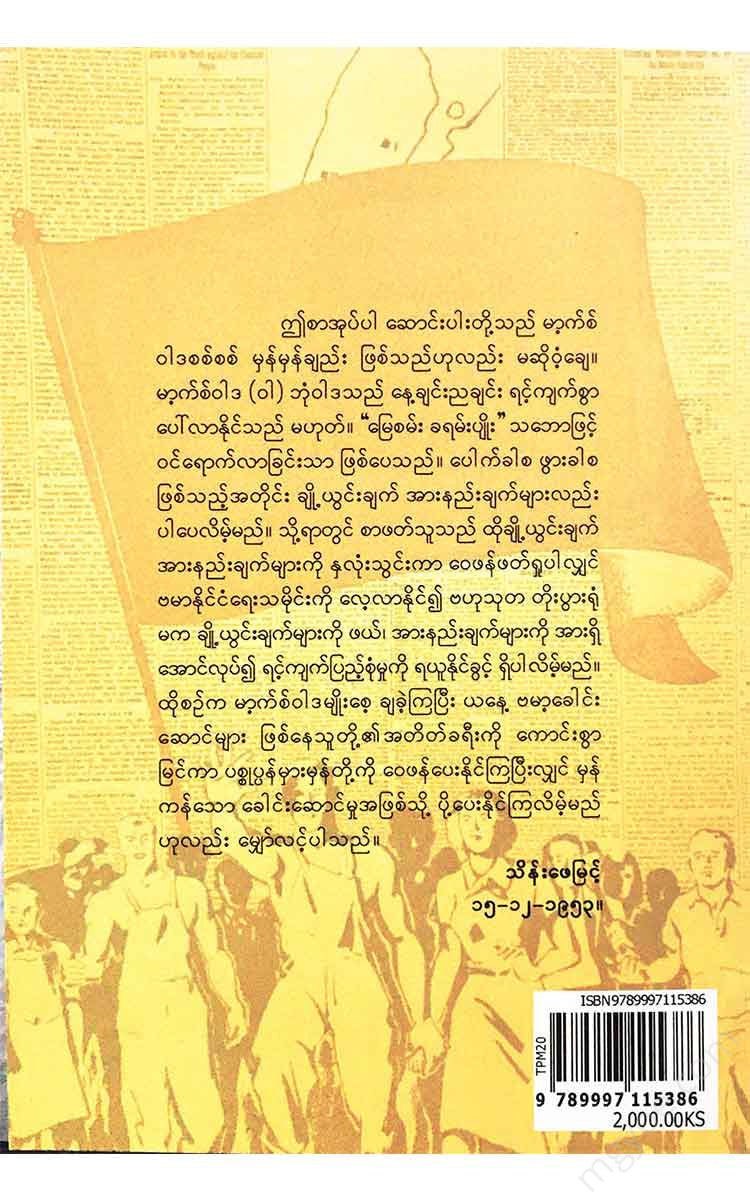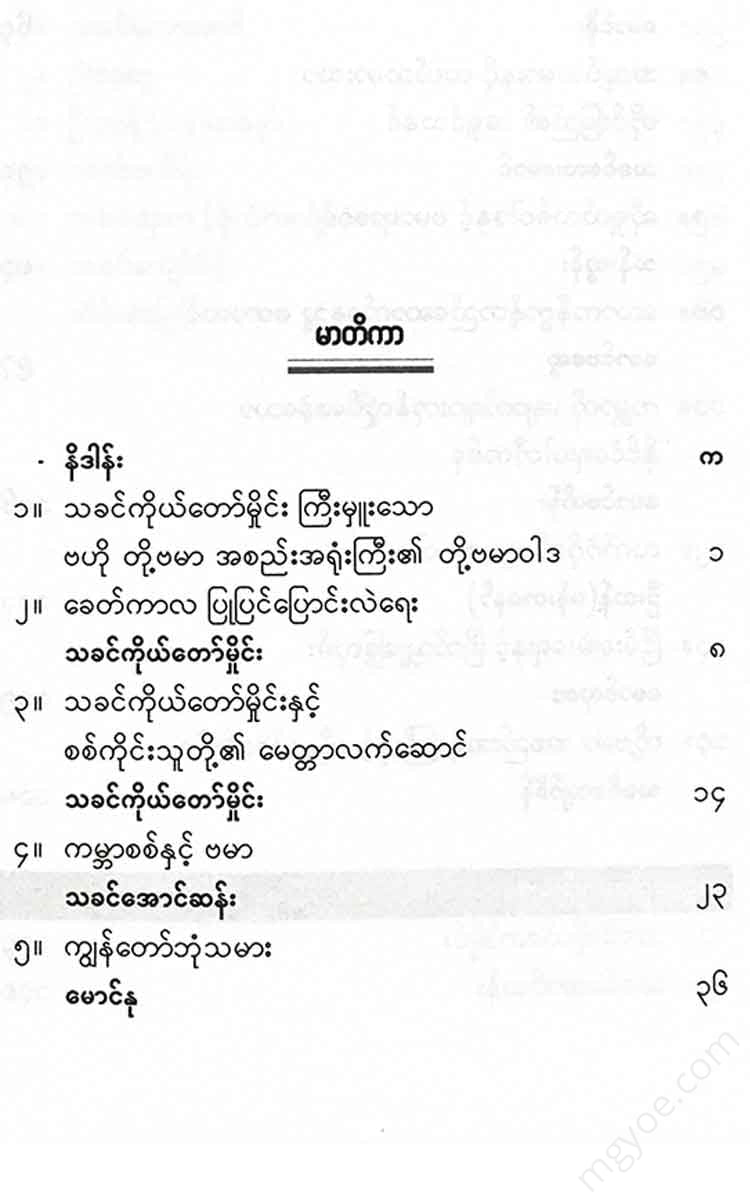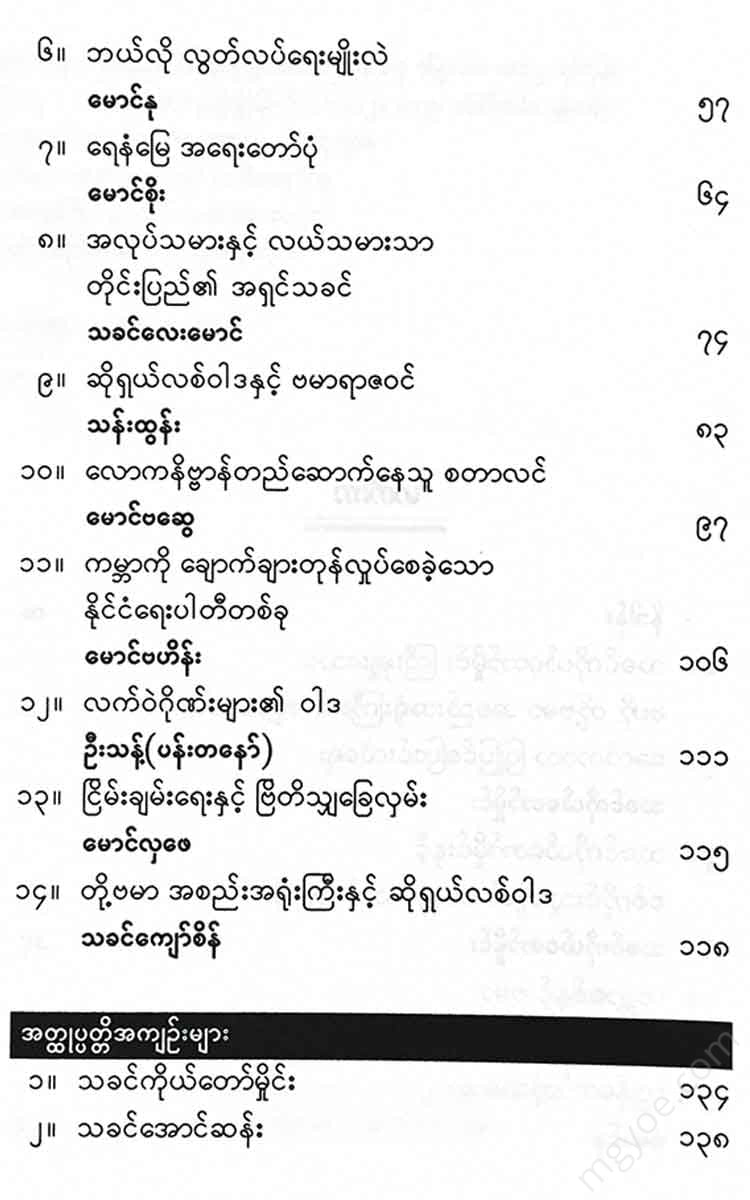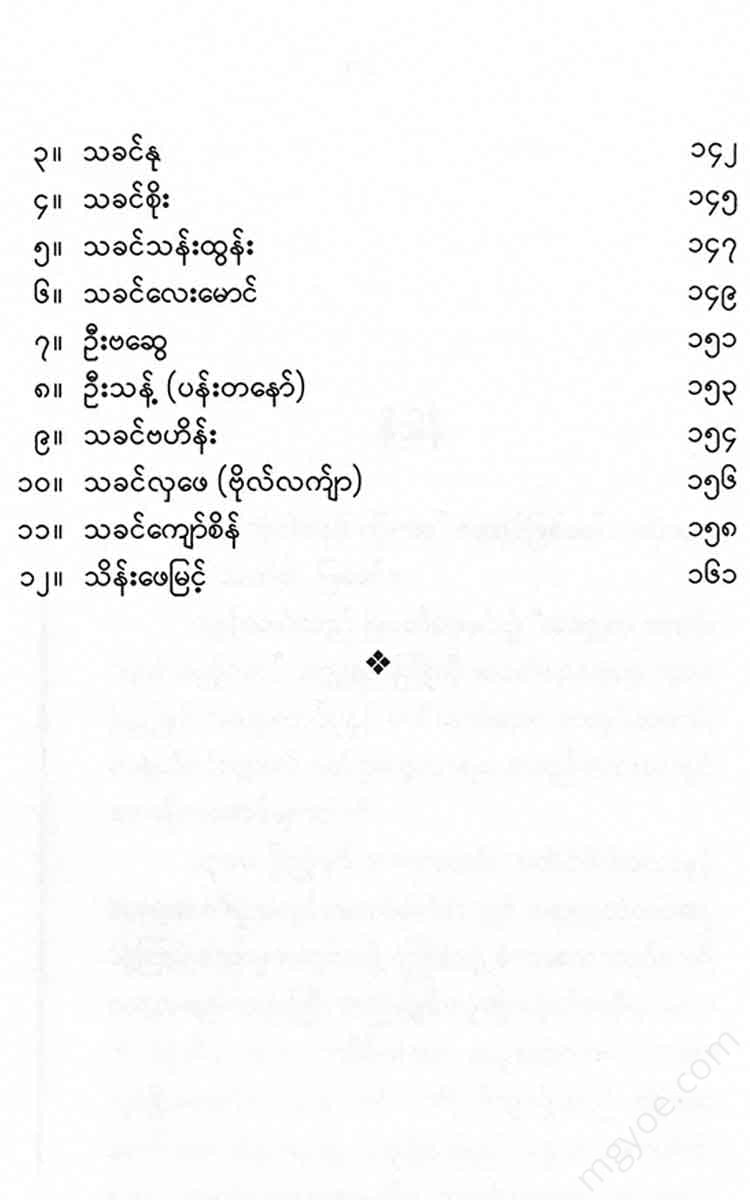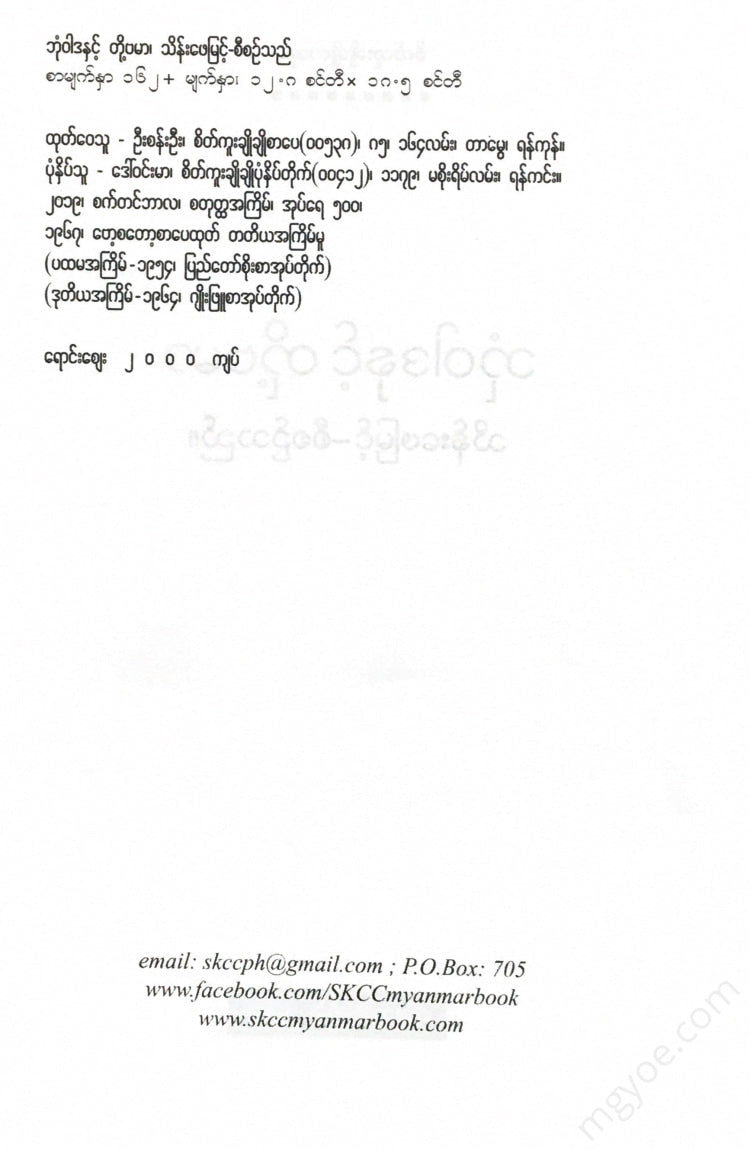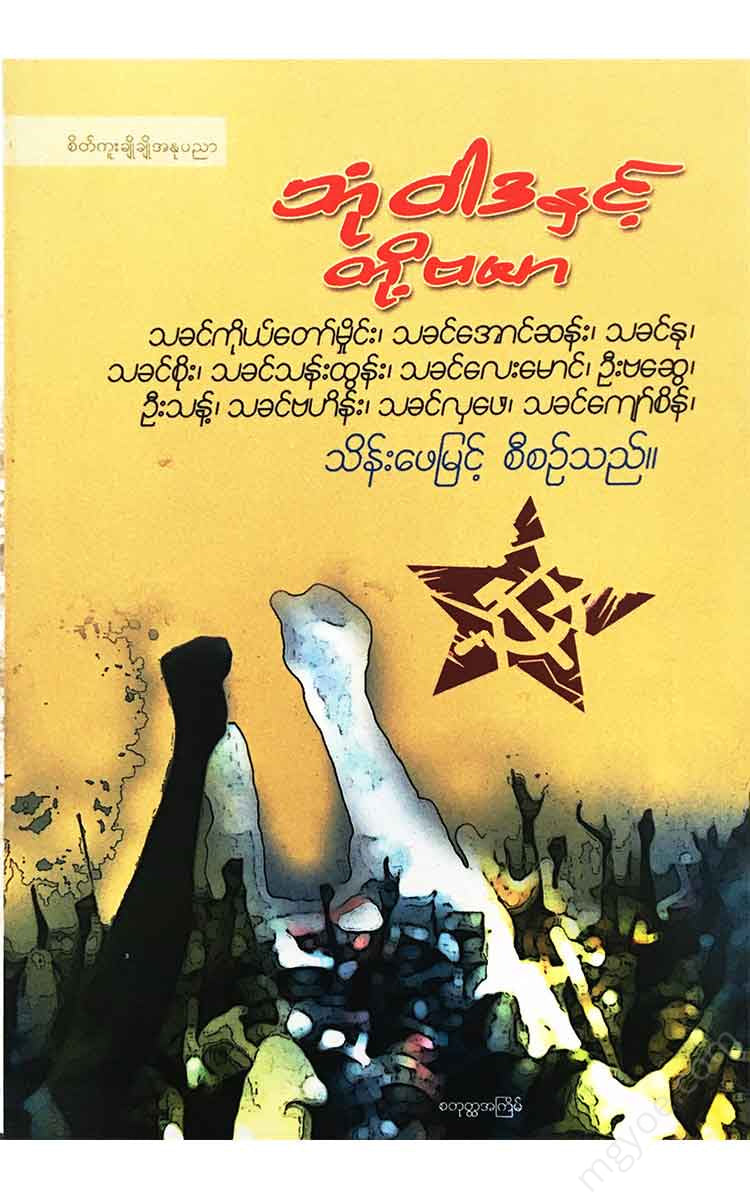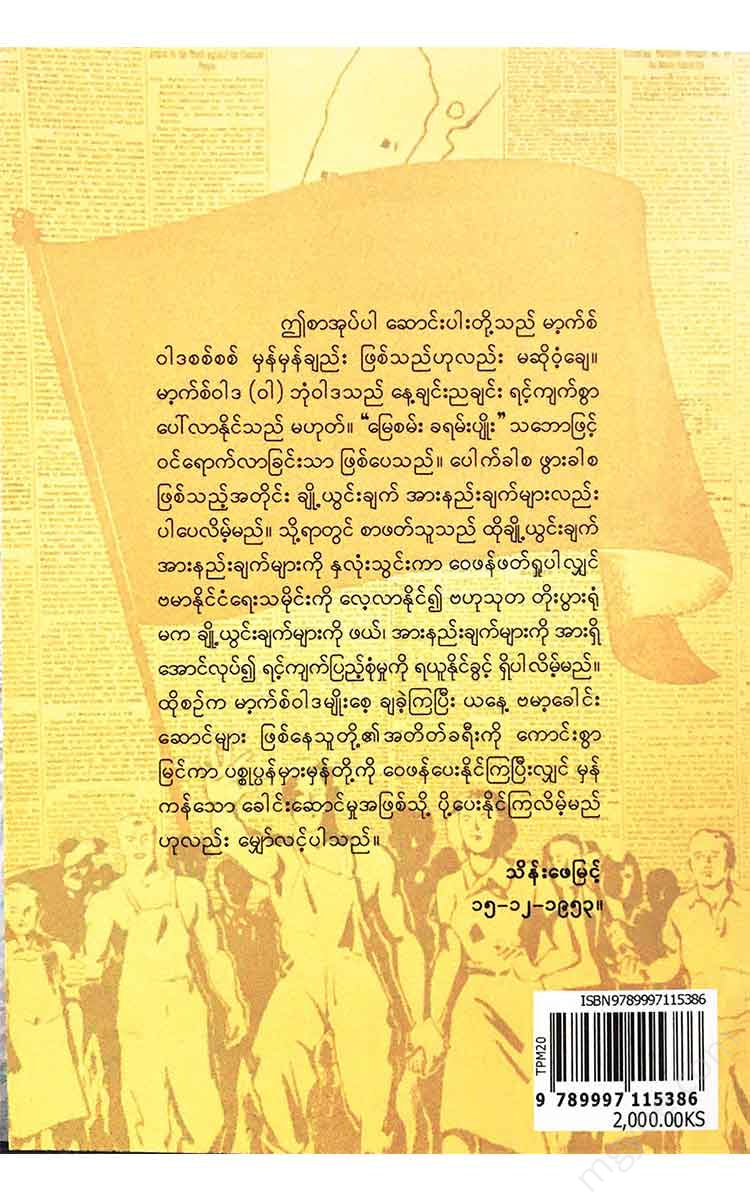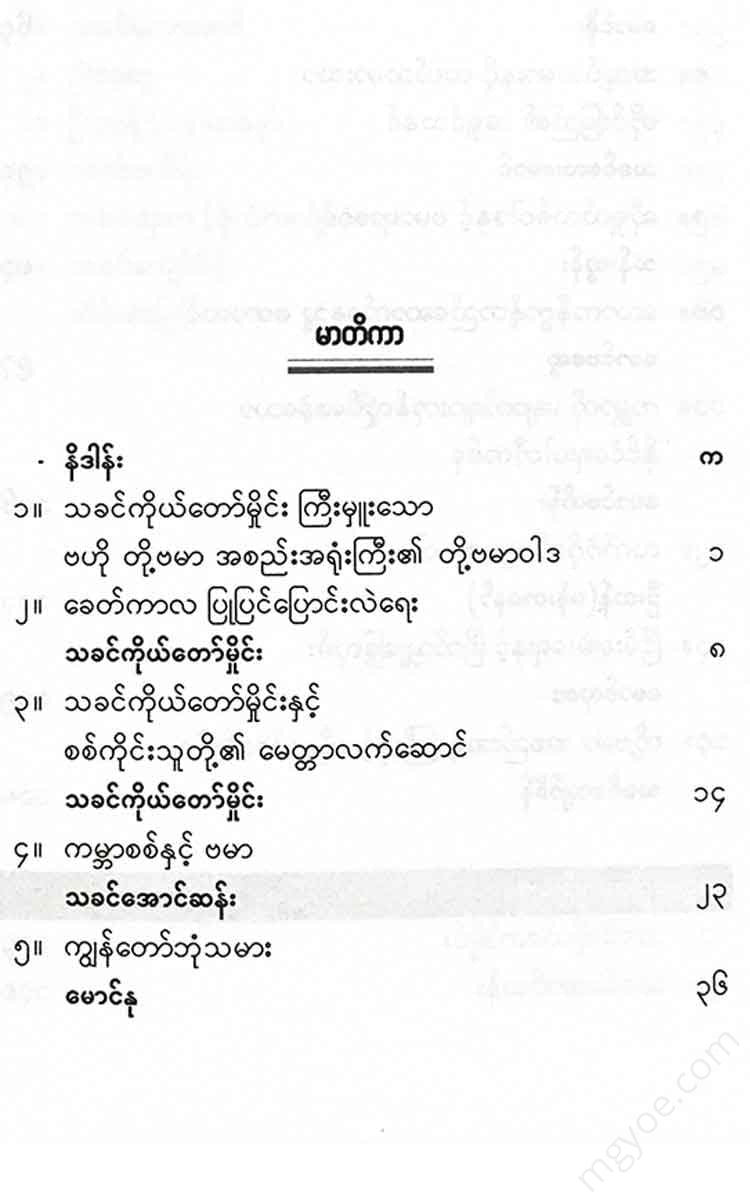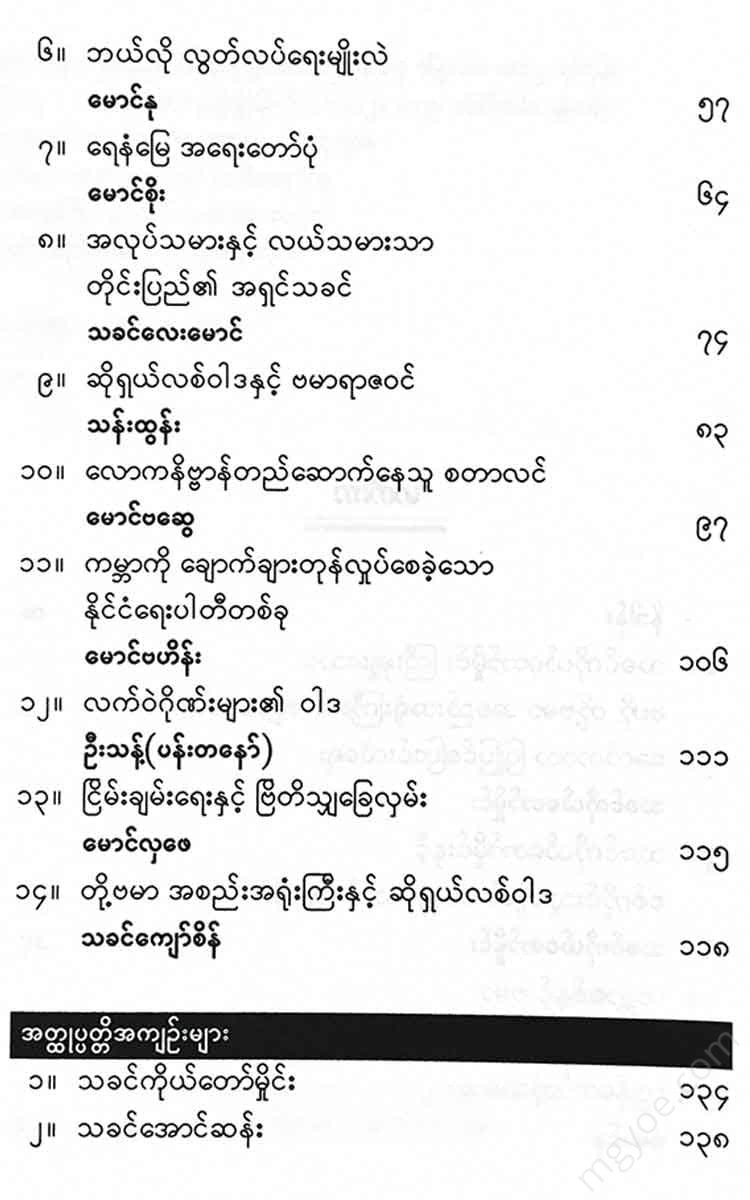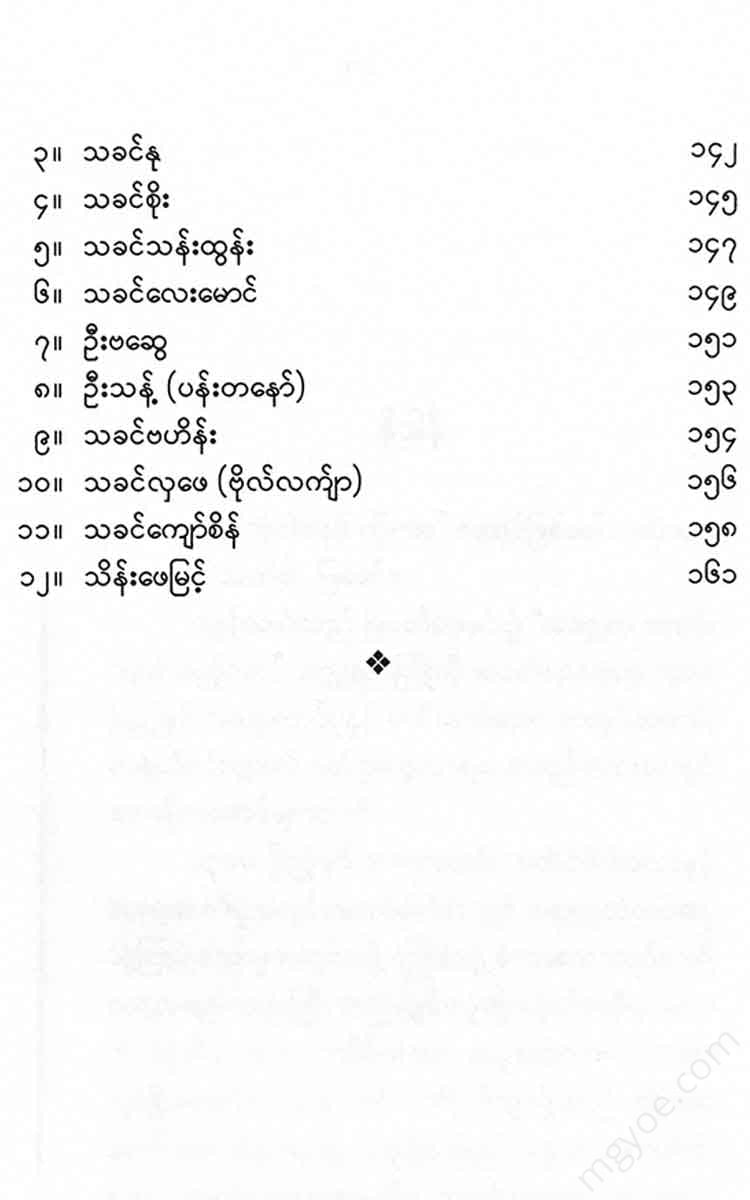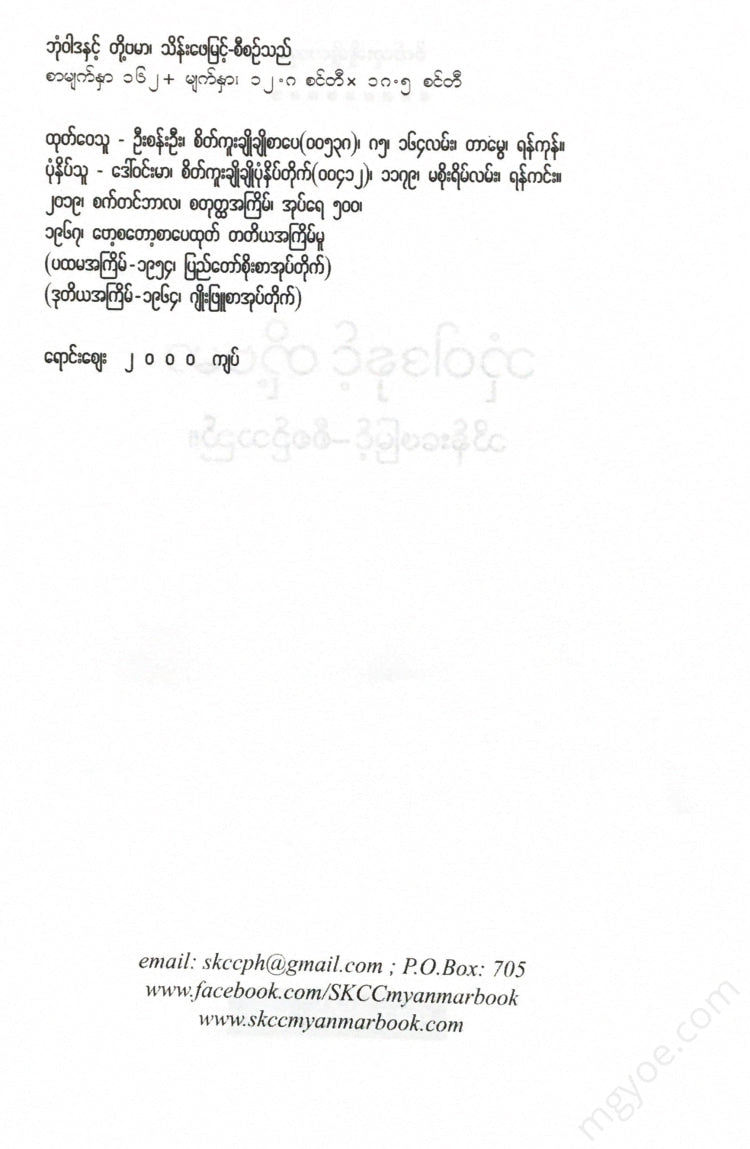စိတ်ကူးချိုချိုစာပေ
Thein Pe Myint - Bonwa and the Burmese
Thein Pe Myint - Bonwa and the Burmese
Couldn't load pickup availability
Introduction
The story of how this book “Common Philosophy and the Burmese” came about is as follows.
I read the long novel “As the Sun Rises in the East” in Myawaddy Magazine, and studied the books and newspapers related to the 1300 uprising. Among them were the Nagani publications.
Before and during the 1900 uprising, Marxism began to influence the Burmese independence movement. The Burmese Nationalist Party began to embrace not only nationalism but also commonism (or Marxism). The pure nationalists gradually moved away from the leadership of the Burmese people, and Marxists came to the leadership of the Burmese people.
The most notable was the presidential address by Thakin Lay Maung, who became the president of the All-Burma Union Conference held in Myingyan. After that, the National Committee of the All-Burma Union declared the Bom Wa Dao as the official ideology of the All-Burma Union in late 1938 and early 1939. “The declaration can be found at the beginning of the book.”
Thus, our entry into Burmese politics was reflected in the Red Dragon publications. Therefore, we read articles about the concept of common ideology, articles that criticize Burmese and world affairs based on common ideology, articles on world common ideology (or) Marxist ideology, and articles about parties.
If we look at the 1300 uprising, we see that it was the first time in Burmese history that the practical work of the Burmese independence movement led by the oilfield workers' strike and the ideology of Marxism were combined.
Since reading the articles mentioned in the Nagani publications, I have been thinking that some of the articles should be selected and published as a book titled “Common Philosophy and Our Burma.”
At that moment, the “Pyidaw Soe” bookstore approached me and asked for a manuscript. I was so busy with my practical political, world peace, and cultural work, as well as writing weekly articles, that I could not afford to write a manuscript large enough for a book. Therefore, I had to urge you to publish the book “Common Philosophy and Our Burma.”
The publishers immediately accepted my suggestion and wrote to the Myanmar Translation Association, which inherited the manuscripts of Nagani, requesting permission to publish them. The Translation Association immediately agreed and selected articles from Nagani and gave them to the publishers.
This article in “Commonism and Burma” does not claim to be the most complete and best reflection of the spread of Commonism to the Burma Association. There may have been other writings at that time. However, since it is not easy to find them, I have mainly included what I have found in the Red Dragon publication. For example... let alone the writings of others, even my own writings cannot be easily found and cannot be included. My little book “Our Immediate Task Today”, published by the Red Dragon and banned by the British government, wrote about the importance of studying Marxism, where to study it, etc. I intended to include that little book in print. However, since the manuscript could not be found, I was unable to include it.
Moreover, I do not dare to claim that the articles in this book are purely Marxist. Marxism (or) common ideology cannot emerge and mature overnight. It only enters in a “seeding” manner. As it is a new birth, it will have its flaws and weaknesses. However, if the reader takes these flaws and weaknesses into consideration and reads them critically, he will be able to study Burmese political history and not only increase his knowledge, but also eliminate the flaws, strengthen the weaknesses, and achieve maturity. I also hope that those who planted the seeds of Marxism at that time and who are the Burmese leaders today will be able to see the past journey well and criticize the present mistakes and right and wrong, and then lead them to the right leadership.
Thein Pe Myint
15-12-1953.
The Lord Himself leads
The Central Burmese Organization's Burmese ideology
The term "Burmese ideology" refers to the aims, beliefs, and attitudes of the Burmese Association. The ideology of the Burmese Association is, in short, "Burmese ideology."
(1) We Burma means gradually uniting and uniting all ethnic groups within Burma and those with Burmese blood who will work for the betterment of Burma according to the We Burma ideology.
(2) The word “Master” means those who work to ensure the rights of all and the well-being of all. Therefore, anyone who strives to live as a human being is called a Master. Everyone should be a Master. At present, we Burmese people are being oppressed politically and economically and are living in a very backward situation. In other words, we do not have the means of living and we do not have the well-being of all. Therefore, the Burmese Association is leading the way for all Burmese people to live well, and every member of the Burmese Association is a Master.
(3) The Burmese Workers' Union is a large organization that includes the majority of Burmese workers, farmers, poor people, shopkeepers, and laborers. From its very beginning, it has been different from other organizations and is unique. Like other organizations in the world that lead and work on the issues of the poor, penniless, and laborers in the changing world, the Burmese Workers' Union is also a large organization that concerns the whole of Burma.
(4) As long as the capitalist system exists, which focuses on the interests of those who have property, those who have capital, and the wealthy, there will be a distinction between those who have property and those who have not, between those who have money and those who have no money. There will be a difference in the status of the rich and the poor, the upper class and the lower class, the exploiters and the exploited, etc.
(5) I believe that as wealth increases in the hands of a minority of people, the rich, the wealthy, and those who profit through their own means, the suffering of the majority, the poor and the underprivileged, increases day by day.
(6) The independence of Burma and other dependent countries, the absence of representative government of the minority bourgeoisie, the elimination of the authoritarian rule established under the capitalist system, and the rapid establishment of new governments in new territories and countries governed on the basis of a system in which everyone is prosperous and all enjoy their rights equally.
(7) The foundation of economic prosperity for Burma and the world cannot be achieved as long as the majority of the lower class, the poor, the penniless, the peasants, the farmers, and the workers themselves are not in power.
Therefore.. The Burmese Association
The basic points are……..
(A) The penniless peasant at the bottom of the row
Working class, poor farmers
The downtrodden should lead in everything. (Pioneering)
(meaning political influence)
(b) The ultimate goal is for everyone.
